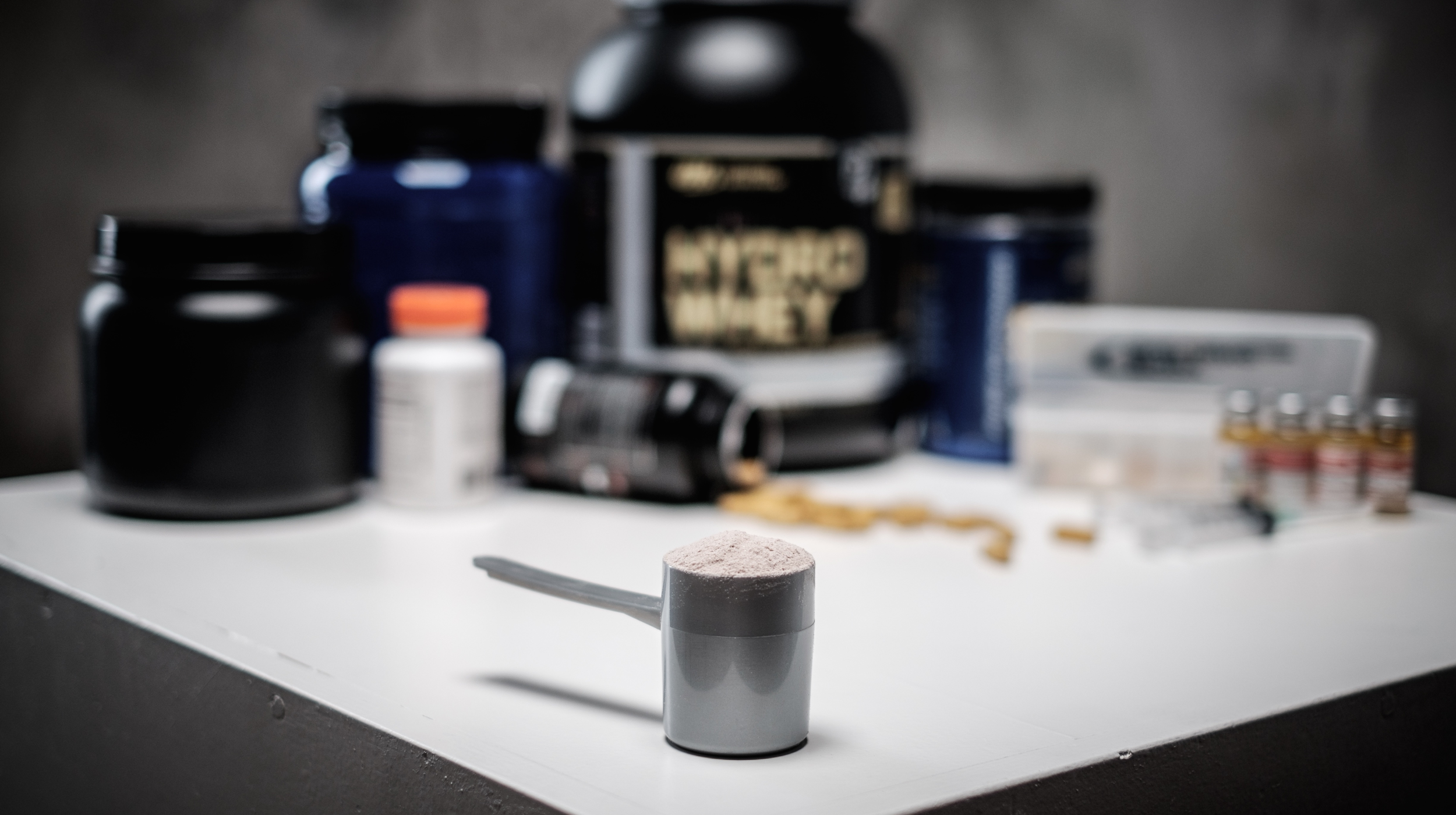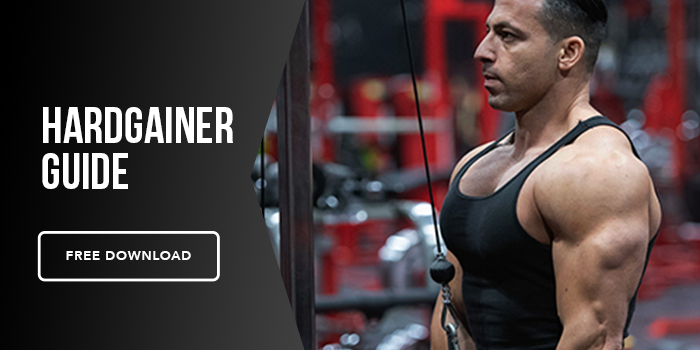If you were to trust most “fitness influencers,” or believe all fitness advertisements you read, you would think supplements were the key to fast and long-term fitness success. Influencers post about how their workouts are better when they take “Super Pumping Rage Pre Workout,” or tell you how much fat they lost by taking “Shredded Ripped Fat Torch,” (don’t bother looking for those supplements, I made them up).
Fitness ads show remarkable before and after photos that display truly dramatic transformations within a very short period of time. “I lost 30lbs and gained muscle in my legs and butt in just 60 days by training hard, eating right and by taking these three powerful supplements.” Although most of us now know better, we still WANT to believe that a newly discovered combination of compounds can solve our fitness and health goals. Unfortunately, nothing could be further from the truth.
If we were to make a pie chart that displayed all factors that contribute to fat loss, muscle building, overall health/wellness, cognitive function and ANYTHING else related to fitness and health, it would look something like this: diet, exercise, lifestyle (sleep, mindset, etc.). This compilation would cover 99% of the progress you could expect to make. What you eat, how you move and exercise, and how you live are almost everything.
To be fair, supplements can make a huge impact but only when they are helping to fill a nutritional deficiency. For example, if your dietary protein intake is low, then supplementing with a protein powder can make a noticeable and positive difference. Another example would be a micronutrient deficiency. If your dietary intake of a particular vitamin or mineral is lower than what is optimal, and especially if its lower than what is necessary for normal function, a supplement can be a life saver. I have had some past clients with deficiencies, specifically vitamin D, who supplemented with the vitamin and saw extremely positive results. I have also seen powerful effects with other clients when they filled other nutritional gaps with supplements. When supplements are used to meet nutritional demands, they can be awesome.
Although supplements and vitamins can have positive results, it is almost always preferable to meet any nutritional demand through food. Nutrients from food are less likely to be overdone (taking too much of a nutrient can be unhealthy or even dangerous), because they are not typically found in massive dosages in what would be considered a reasonable amount of food. Food also contains many non-vitamin/mineral compounds which may help with the absorption and effectiveness of certain nutrients. For example, citrus fruits contain vitamin C, but they also contain naturally occurring bioflavonoids which seem to help with the assimilation and effectiveness of vitamin C. Overall, getting your nutrients from food is superior to getting them from supplements.
BUT what if your diet, training and lifestyle are dialed in? Can supplements be of any value?
The short answer is yes. If your diet, exercise/activity and lifestyle are on point, you are probably someone who takes your fitness and health very seriously. It’s no easy feat living in a way that optimizes fitness and health to the fullest, while also living in a modern world. Cheap, hyper-palatable food is everywhere, your normal life is naturally sedentary and most of the people around you are not anywhere close to being on the same page as you. If this is you, then you probably appreciate even a small improvement in physical performance, fitness and health. To someone who takes their fitness very seriously, a 1-2% improvement is a big deal. But with so many supplements on the market, which ones are worth the investment? Which supplements will consistently give YOU that extra 1-2% you are looking for?
Since we are assuming that you have things dialed in, I will stay away from the “nutritional filler” supplement category. You aren’t lacking any macro nutrients or micronutrients, so supplementing with any of those will be a waste of time or may actually give your body too much of something which will actually REDUCE your fitness and health levels. Let’s talk about supplements that are worth actually taking.
Creatine
Aside from supplements that fill a nutritional need, I consider creatine to be the king of all supplements. When it was introduced in the 90’s, it sent shockwaves throughout the fitness industry. It was a supplement that you could feel, and it produced measurable changes. Creatine is a compound that is naturally occurring in animal products. When consumed, creatine is used by the body to produce more adenosine triphosphate or ATP for short. ATP is one of the MAIN sources of energy for all of your cells. The more ATP you have, the better cells trend to operate. This is particularly true for MUSCLE cells. Increasing ATP in your muscles makes you stronger and faster. It also leads to more muscle.
Currently creatine is one of the most studied supplements of all time. There are hundreds of well conducted studies that demonstrate creatine’s performance effects. More recently, studies have been done on creatine that show its health boosting and cognitive boosting effects as well. This makes sense since all cells use ATP. Creatine is also safe. In healthy individuals, creatine has not been shown to have any negative side effects, even when taken for months at a time.
When you take creatine expect to see some strength gains within the first couple weeks of taking it. Some of you may even notice some mental clarity effects. Due to ATP’s water attracting effects on muscle cells, you may also gain a pound, or a few, on the scale. Do not worry it’s not fat or bloat, it’s intracellular water. Increased ATP attracts water INSIDE the muscles (bloat is outside) which means that your muscles will look and feel fuller and tighter. Most people benefit from taking about 2-5 grams of creatine every day.
Caffeine
There is no other natural compound that has shown as consistent wakefulness, energetic and mood lifting effects as caffeine. It is a naturally occurring compound found in many plants, and humans have likely been consuming it for thousands of years. Studies show that caffeine reliably improves athletic performance, mental performance and can even make people feel less “down” emotionally. Caffeine has even been shown to prevent cognitive degenerative disorders like dementia.
The one caveat with caffeine is that its effects can vary dramatically from person to person. Some people tolerate caffeine well and can have relatively large amounts of it with no negative effects. Others can have a small amount and will feel anxious or get heart arrhythmia issues. Another thing to consider is how differently caffeine can affect us depending on what else is going on in our lives. Caffeine is a central nervous system stimulant and, if your current life is stressful, adding a stimulant like caffeine can stress the body too much resulting in hormone imbalances, anxiety disorders and make you generally LESS healthy.
Your body also quickly builds up a tolerance to caffeine which means it loses its positive effects. Some people try to make up for this by taking higher and higher doses, but this also increases the risks of negative side effects. More and more caffeine will eventually produce negative effects with no perceivable positives.
If you want to gain the maximum performance and mental benefits of caffeine, you should cycle it. This can either mean you don’t take it every day, or it means you take a long break every few weeks. Most of my clients did best by ingesting caffeine 3-4 days a week. This minimized the negatives and kept the “magic” of caffeine alive. For most people, an effective dose of caffeine is 100-400 milligrams, although sensitive people may want to use much less. I suggest starting with the low dose to assess tolerance.
That is pretty much it. There are other supplements that “may” have some benefits, but there aren’t any with as rigorous scientific studies supporting them like there are with creatine and caffeine. If all is dialed in, give them a try and see if the money you spend on them is worth it.






